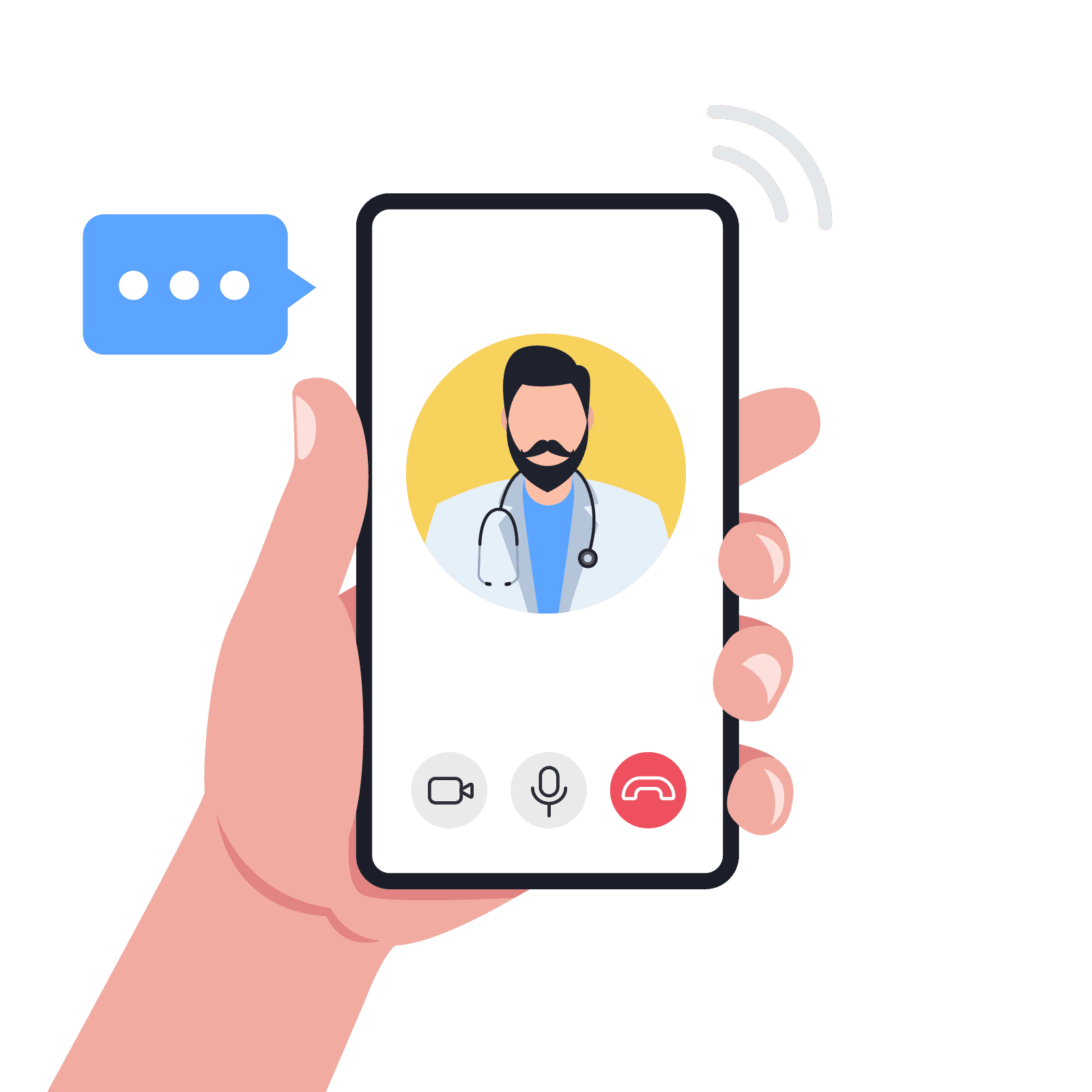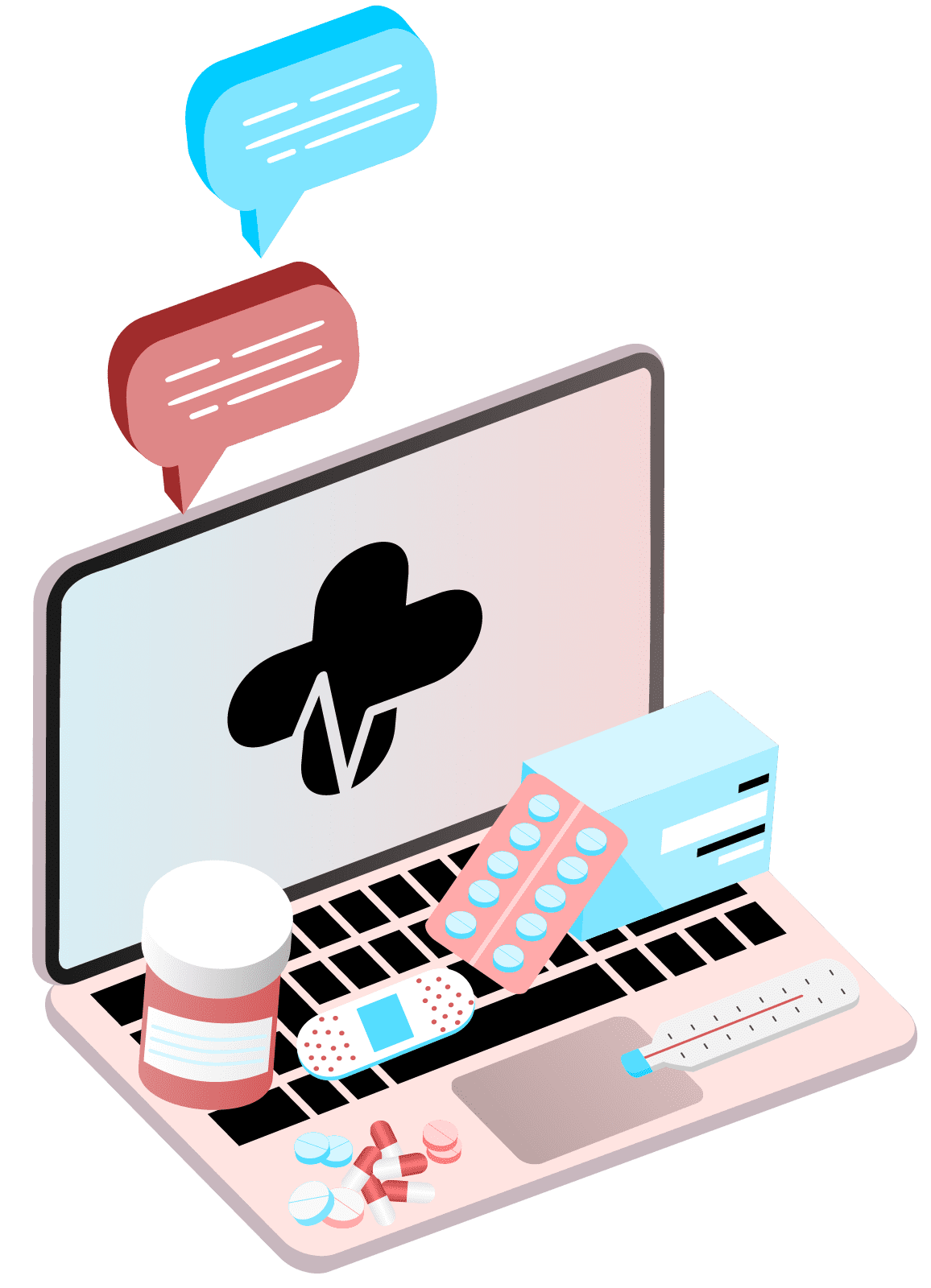Cholesterol Consults with Bulk Billed GP Online
All .doctor appointments are fully bulk billed, so you can see a doctor about treating asthma with no out-of-pocket costs.
- Script sent instantly by SMS to you or your pharmacy
- Appointments available 7 days a week
- Fully bulk billed to Medicare

Ready to access bulk-billed doctor appointments?
Become a .doctor family member and gain access to unlimited bulk-billed video and consultations.

Need to speak to a doctor? Get the medical advice you need from anywhere in Australia. Our team of Australian-registered doctors can provide you fast and easy to access telehealth consulting services in Australia.
You can talk to your doctor in a bulk-billed video or phone consult about a script or repeat prescription. If a script is required, an eScript will be sent instantly to your mobile phone or your preferred pharmacy.
We fully bulk-bill all appointments, so you’ll never pay out-of-pocket to see a GP. You just need to attend one in-person Onboarding Appointment every 12 months to maintain your .doctor family membership.
Understanding Cholesterol: The Highs and Lows.
At .doctor, we pride ourselves on providing easily accessible, high-quality healthcare solutions. We’re here to help you understand and manage your cholestrol.
Cholesterol, a waxy substance found in your blood, plays a crucial role in building healthy cells. However, it can become a health concern when its balance is skewed. There are two primary types of cholesterol:
High-Density Lipoprotein (HDL): Known as the ‘good’ cholesterol, HDL helps carry cholesterol away from your arteries and back to the liver, where it’s broken down and removed from the body.
Low-Density Lipoprotein (LDL): Termed the ‘bad’ cholesterol, LDL can accumulate in the arteries, forming hard deposits known as plaques that can cause blockages.
High cholesterol is when you have too much LDL or not enough HDL, creating an imbalance that can lead to heart disease. Conversely, low cholesterol implies lower-than-recommended levels of HDL or LDL, which could lead to its own set of health problems such as hormonal imbalances and mental health issues.
Symptoms of High and Low Cholesterol
High cholesterol is often termed a “silent” disease as it usually doesn’t present noticeable symptoms. Regular screening is essential as untreated high cholesterol can lead to severe conditions, such as heart attack or stroke.
On the other hand, low cholesterol might present symptoms related to the conditions it can cause, such as:
- Depression or anxiety
- Risk-taking behaviour
- Digestive problems
Again, these symptoms are not directly tied to cholesterol levels, but to the potential conditions associated with it. Regular check-ups can help detect any abnormal cholesterol levels.
Causes of High and Low Cholesterol
High cholesterol can be caused by:
- Poor diet: Consuming saturated fats, trans fats, and cholesterol-rich food can raise your cholesterol level.
- Lack of exercise: Physical activity can help raise HDL cholesterol while lowering LDL cholesterol.
- Obesity: Being overweight can lower HDL cholesterol and increase LDL cholesterol.
- Smoking: This can lower HDL cholesterol and harm the walls of your blood vessels.
- Genetics: Sometimes, high cholesterol is due to genetic factors.
Low cholesterol can be caused by:
- Malnutrition or extreme dieting
- Hyperthyroidism
- Liver disease
- Malabsorption conditions such as celiac disease
- Certain genetic conditions
Diagnosis of High and Low Cholesterol
The primary method for diagnosing high or low cholesterol is a blood test, often called a lipid panel or lipid profile. This test measures total cholesterol, LDL cholesterol, HDL cholesterol, and triglycerides. Your healthcare provider will interpret these results to evaluate your cholesterol levels.
Treatment Options for High and Low Cholesterol
High cholesterol treatment options include:
- Lifestyle changes: Adopting a healthy diet, getting regular exercise, quitting smoking, and moderating alcohol consumption.
- Medication: If lifestyle changes are not enough, doctors may prescribe cholesterol-lowering medications like statins, bile-acid-binding resins, cholesterol absorption inhibitors, or PCSK9 inhibitors.
Low cholesterol treatment involves addressing the underlying cause. This might mean:
- Nutritional counselling to ensure a well-balanced diet
- Treatment of underlying diseases like hyperthyroidism or liver disease
- Adjustment of current medications that may be causing low cholesterol

Dr Ramu Nachiappan
Founder & GP
"We're a team of GPs committed to providing quality care to patients in regional and rural Australia."

More than just treatment for cholesterol.
When you join the .doctor family we create a health profile for you which our GPs all refer to and update. So each time you interact with us we’ll keep a record.
This allows our GPs to give you the best advice every time – more than just treatment for cholesterol.
Join the .doctor family in 3 easy steps.
1
Create your free account
Answer a few questions and register to schedule your initial In-person Onboarding Appointment.
2
Attend one in-person appointment
See one of our GPs face-to-face at a location near you for a quick Onboarding appointment.
Ready to access unlimited bulk billed GP consults?
Schedule a time for your in-person Onboarding Appointment so you can gain access to unlimited bulk-billed video consults for the next 12 months.